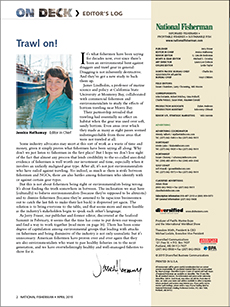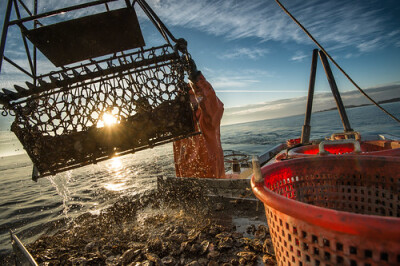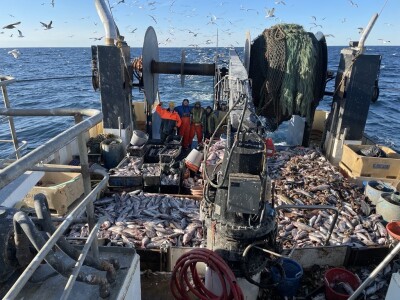Trawl on!
By Jessica Hathaway
It’s what fishermen have been saying for decades now, ever since there’s been an environmental bent against draggers and trawl gear in general: Dragging is not inherently destructive. And they’ve got a new study to back them up.
James Lindholm, a professor of marine science and policy at California State University at Monterey Bay, collaborated with commercial fishermen and environmentalists to study the effects of bottom trawling near Morro Bay.
Their partnership revealed that trawling had essentially no effect on habitat when the gear was used over soft, sandy bottom. Even areas over which they made as many as eight passes seemed indistinguishable from those areas that were not trawled at all.
Some industry advocates may snort at this sort of work as a waste of time and money, given it simply proves what fishermen have been saying all along. Why don’t we just listen to fishermen in the first place? But I hope we don’t lose sight of the fact that almost any process that lends credibility to the so-called anecdotal evidence of fishermen is well worth our investment and time, especially when it involves an unfairly maligned gear type. After all, it’s not just environmentalists who have railed against trawling. Yes indeed, as much as there is strife between fishermen and NGOs, there are also battles among fishermen who identify with or against certain gear types.
But this is not about fishermen being right or environmentalists being wrong. It’s about finding the truth somewhere in between. The inclination we may have (culturally) to believe environmentalists (because they’re supposed to be altruistic) and to dismiss fishermen (because they’re assumed to be rapacious businessmen out to catch the last fish to make their last buck) is disproved yet again. The solution is to bring everyone to the table, and that seems more and more feasible as the industry’s stakeholders begin to speak each other’s language.
As Jerry Fraser, our publisher and former editor, discovered at the Seafood Summit in February, it seems that the time has come to put down our weapons and find a way to work together (read more on page 16). There has been some degree of capitulation among environmental groups that leading with attacks on fishermen and being dismissive of the industry is not only unrealistic but it’s unnecessary. American fishermen have proven over and over again that they are also environmentalists who want to pass healthy fisheries on to the next generation, and we have overwhelmingly healthy and well-managed fisheries to show for it.








